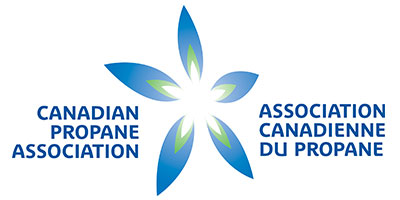Friday, June 7, 2019
The Canadian Propane Association (CPA) gathered at its annual general meeting May 28, 2019 to set priorities and the agenda for the upcoming fall election to ensure the industry’s collective voice is heard. Noted was that propane is a low-emission, accessible, and affordable fuel that can support government policies to reduce greenhouse gas (GHG) emissions, reduce costs, contribute to job creation, and help grow the economy.
 But these important contributions are being ignored by the government even as it says it wants to reduce GHG emissions while creating economic growth, the association observes. “The CPA supports a cleaner environment and reduced emissions, but the current government’s policies, including the new carbon levy under the Greenhouse Gas Pollution Pricing Act, do not consider propane for its qualities to transition to a lower-carbon economy,” says CPA chairman Dan Kelly.
But these important contributions are being ignored by the government even as it says it wants to reduce GHG emissions while creating economic growth, the association observes. “The CPA supports a cleaner environment and reduced emissions, but the current government’s policies, including the new carbon levy under the Greenhouse Gas Pollution Pricing Act, do not consider propane for its qualities to transition to a lower-carbon economy,” says CPA chairman Dan Kelly.
He explains that the levy, or “backstop,” that came into force April 1, 2019 affects consumers—particularly farmers—in Saskatchewan, Manitoba, Ontario, and New Brunswick—who will be required to pay an additional 3 cents per liter for propane because of the levy. As stated in the act, a registered distributor can generally deliver gasoline or diesel to a farmer for certain applications without the fuel charge being applied, however.
But there are no such allowances or exemptions for propane, which emits about 26% less GHGs than gasoline and 98% less dangerous toxins or particulate matter than diesel. “On one hand the government agrees that propane is a low-carbon, clean-burning fuel, but on the other hand it ignores propane, which can be used in numerous applications,” Kelly says. “This is contrary to what the government is intending to accomplish.”
“Propane is a lower emitter of GHGs than other carbon-based fuels, therefore it must be part of any government’s energy policy,” says Nathalie St- Pierre, CPA president and CEO. “Federal parties will hear from the propane industry this fall—our collective voices will be loud and clear: there must be fair and balanced policies that make sense as Canada looks to reduce emissions.”
 But these important contributions are being ignored by the government even as it says it wants to reduce GHG emissions while creating economic growth, the association observes. “The CPA supports a cleaner environment and reduced emissions, but the current government’s policies, including the new carbon levy under the Greenhouse Gas Pollution Pricing Act, do not consider propane for its qualities to transition to a lower-carbon economy,” says CPA chairman Dan Kelly.
But these important contributions are being ignored by the government even as it says it wants to reduce GHG emissions while creating economic growth, the association observes. “The CPA supports a cleaner environment and reduced emissions, but the current government’s policies, including the new carbon levy under the Greenhouse Gas Pollution Pricing Act, do not consider propane for its qualities to transition to a lower-carbon economy,” says CPA chairman Dan Kelly.He explains that the levy, or “backstop,” that came into force April 1, 2019 affects consumers—particularly farmers—in Saskatchewan, Manitoba, Ontario, and New Brunswick—who will be required to pay an additional 3 cents per liter for propane because of the levy. As stated in the act, a registered distributor can generally deliver gasoline or diesel to a farmer for certain applications without the fuel charge being applied, however.
But there are no such allowances or exemptions for propane, which emits about 26% less GHGs than gasoline and 98% less dangerous toxins or particulate matter than diesel. “On one hand the government agrees that propane is a low-carbon, clean-burning fuel, but on the other hand it ignores propane, which can be used in numerous applications,” Kelly says. “This is contrary to what the government is intending to accomplish.”
“Propane is a lower emitter of GHGs than other carbon-based fuels, therefore it must be part of any government’s energy policy,” says Nathalie St- Pierre, CPA president and CEO. “Federal parties will hear from the propane industry this fall—our collective voices will be loud and clear: there must be fair and balanced policies that make sense as Canada looks to reduce emissions.”

